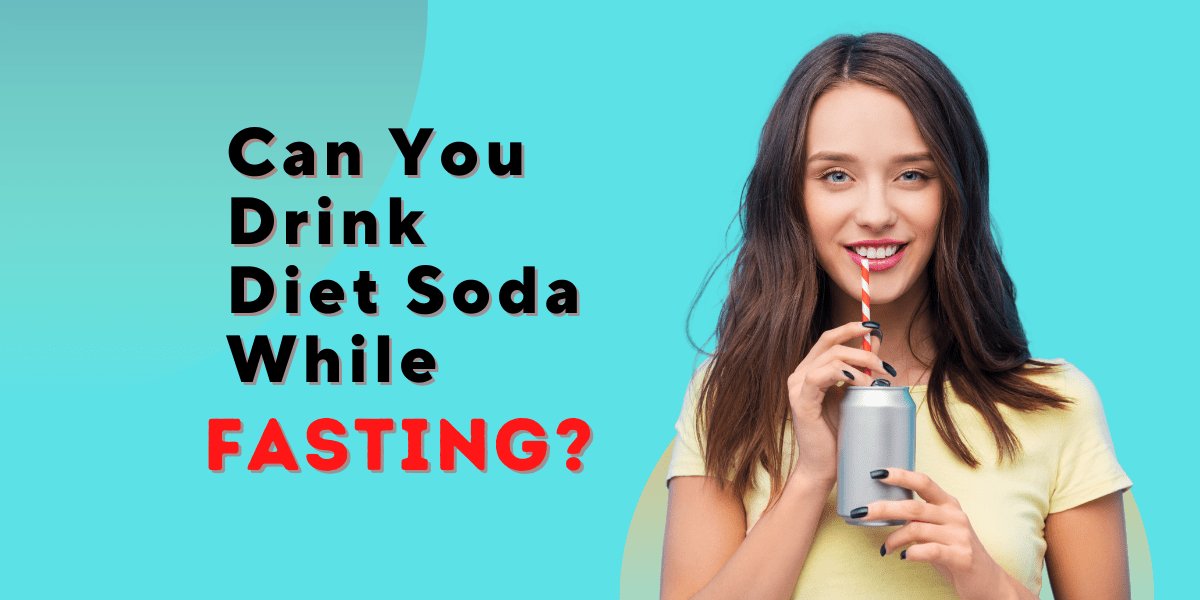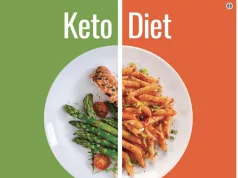Can you drink diet soda while fasting? It’s a question that pops up in the minds of many intermittent fasting enthusiasts, especially those craving a sweet fix during their fasting window. While diet soda seems like a calorie-free option, the truth is a bit more nuanced.
Artificial sweeteners, the stars of diet soda, can have unexpected effects on your body, potentially throwing a wrench into your fasting goals.
This article delves into the world of diet soda and intermittent fasting, exploring the potential benefits and drawbacks of this seemingly innocent beverage. We’ll examine how artificial sweeteners impact your body, compare their effects during fasting periods versus non-fasting periods, and uncover the potential disruption of hormonal balance caused by diet soda during your fasting window.
We’ll also explore alternative beverages that can quench your thirst without compromising your fasting efforts. Get ready to learn the truth about diet soda and fasting, and discover how to make the best choices for your body and your goals.
Understanding Intermittent Fasting
Intermittent fasting (IF) is a popular dietary pattern that cycles between periods of eating and fasting. It’s not a diet in the traditional sense, but rather a way to regulate your eating schedule. Instead of focusing on what you eat, IF focuses on
when* you eat.
Types of Intermittent Fasting
Intermittent fasting methods involve different eating patterns and fasting durations. Here’s a glimpse into some of the popular methods:
- The 16/8 Method (Leangains):This method involves fasting for 16 hours each day and restricting your eating window to 8 hours. It’s often considered one of the easiest methods to follow.
- The 5:2 Diet:This method involves eating normally for five days a week and restricting your calorie intake to 500-600 calories for two non-consecutive days.
- Alternate-Day Fasting:This method involves fasting for a full 24 hours every other day.
- Eat Stop Eat:This method involves fasting for 24 hours once or twice a week.
Potential Health Benefits of Intermittent Fasting
Research suggests that intermittent fasting may offer a range of health benefits, including:
- Weight Loss:Intermittent fasting can help you lose weight by reducing your overall calorie intake.
- Improved Insulin Sensitivity:Fasting can improve your body’s response to insulin, which can help regulate blood sugar levels and reduce the risk of type 2 diabetes.
- Reduced Inflammation:Intermittent fasting has been shown to reduce inflammation throughout the body, which may protect against chronic diseases.
- Brain Health:Some studies suggest that intermittent fasting may protect against neurodegenerative diseases, such as Alzheimer’s disease.
- Heart Health:Intermittent fasting may improve heart health by reducing blood pressure, cholesterol levels, and triglyceride levels.
Potential Risks and Side Effects of Intermittent Fasting
While intermittent fasting can be beneficial, it’s essential to be aware of potential risks and side effects.
- Headaches:Some people may experience headaches during the early stages of intermittent fasting, as their body adjusts to the changes in eating patterns.
- Fatigue:Fasting can lead to fatigue, especially during the initial stages.
- Irritability:Some people may experience irritability or mood swings while fasting.
- Digestive Issues:Fasting can sometimes lead to digestive issues, such as constipation or diarrhea.
- Nutrient Deficiencies:If you’re not careful about your diet during eating windows, you may be at risk of nutrient deficiencies.
Diet Soda and Intermittent Fasting

Diet soda is a popular choice for those looking to cut calories and sugar intake, but its impact on the body, especially during intermittent fasting, is a topic of ongoing debate. While diet soda may seem like a harmless alternative to regular soda, its artificial sweeteners can have unexpected consequences.
Look, I get it, fasting is all about those sweet, sweet, sugar-free gains, right? But while you’re contemplating if diet soda is a fasting faux pas, why not ponder the bigger picture? Is a vegan diet healthier than your current one?
It might be worth exploring if you’re serious about optimizing your health. Then, you can get back to the burning question: does diet soda break your fast? Because, honestly, who can resist a little bubbly, guilt-free fizz?
The Effects of Artificial Sweeteners
Artificial sweeteners are designed to mimic the sweetness of sugar without the calories. However, they can have a complex effect on the body, particularly on gut bacteria and hormone regulation.
So, you’re fasting and wondering if diet soda is your new best friend? While it’s sugar-free, those artificial sweeteners might be messing with your body’s hunger signals. Maybe focus on the real deal – check out the best foods to diet on – and let your taste buds enjoy the real thing.
After all, who wants to be the person who’s fasting on diet soda and still craving a burger? Just sayin’.
- Altered Gut Microbiome:Artificial sweeteners can disrupt the delicate balance of gut bacteria, potentially contributing to digestive issues, inflammation, and even changes in metabolism.
- Hormonal Imbalance:Artificial sweeteners can trigger the release of insulin, a hormone responsible for regulating blood sugar levels. This can lead to insulin resistance, a condition that increases the risk of type 2 diabetes and other metabolic disorders. Some studies suggest that artificial sweeteners may also interfere with the production of other hormones, like leptin, which plays a role in appetite regulation.
So, you’re wondering about diet soda and fasting? It’s a tricky one, because while it’s zero calories, some folks think it messes with your body’s natural hunger signals. If you’re looking to really dive into a low-carb lifestyle, you might want to check out how to do keto diet , where you can learn all about the ketogenic diet.
And remember, if you’re on a fast, it’s best to stick to water, black coffee, or tea. Keep those taste buds entertained, but don’t let them hijack your fasting goals!
- Increased Cravings:Artificial sweeteners may paradoxically lead to increased cravings for sugary foods. This is because they can stimulate the reward centers in the brain, making you want more sweet treats, even if you’ve just consumed something sweet.
Alternative Beverages During Fasting
While water is the go-to beverage during fasting, there are other options that can help you stay hydrated and satiated without breaking your fast. Let’s explore some alternatives and their impact on your fasting journey.
Beverage Comparison, Can you drink diet soda while fasting
Here’s a table comparing the calorie content and potential impact of various beverages during fasting:| Beverage | Calories | Potential Impact ||—|—|—|| Water | 0 | Promotes hydration, essential for fasting || Unsweetened Tea | 0 | Provides antioxidants, can help with satiety || Black Coffee | 0 | Can boost metabolism, may enhance focus || Diet Soda | 0 | May interfere with gut health, potential for cravings |
Natural Zero-Calorie Alternatives to Diet Soda
If you’re craving something fizzy during your fast, there are natural, zero-calorie alternatives to diet soda. These options can provide a refreshing burst without compromising your fasting goals:
- Sparkling Water:This is a simple and effective way to quench your thirst and enjoy a bit of fizz. You can add a squeeze of lemon or lime for extra flavor.
- Infused Water:Add slices of fruit, herbs, or cucumber to your water for a refreshing and flavorful drink. Popular choices include lemon, cucumber, mint, and berries.
- Unsweetened Herbal Teas:Many herbal teas, such as peppermint, ginger, and chamomile, are naturally caffeine-free and can be enjoyed hot or cold.
Staying Hydrated During Fasting
Staying hydrated is crucial during fasting periods, as it helps to prevent headaches, fatigue, and other side effects. Here are some tips for ensuring adequate hydration:
- Drink water throughout the day:Aim for at least 8 glasses of water per day, even more if you’re exercising or in a hot climate.
- Carry a water bottle with you:This will make it easier to stay hydrated on the go.
- Listen to your body:If you feel thirsty, drink water. Don’t wait until you’re dehydrated.
Individual Considerations
While diet soda might seem like a harmless choice during fasting, it’s essential to consider individual factors that can influence its suitability. The impact of diet soda on your fasting journey can vary based on your unique health conditions, goals, and overall approach to intermittent fasting.
Factors Influencing Diet Soda Consumption During Fasting
Several factors can influence whether diet soda is a suitable beverage for you during fasting:
- Health Conditions:Certain health conditions, such as diabetes, metabolic syndrome, or kidney problems, might make diet soda consumption during fasting less desirable. Consult your doctor to understand how diet soda might affect your specific health concerns.
- Fasting Goals:If your primary goal is weight loss, diet soda might not be the most effective choice. While it provides zero calories, it can trigger insulin spikes, which can interfere with fat burning. If your goal is to improve insulin sensitivity or manage blood sugar levels, it’s crucial to discuss the potential impact of diet soda with your healthcare provider.
- Individual Sensitivity:Some individuals experience adverse effects from artificial sweeteners, such as headaches, bloating, or digestive issues. If you are sensitive to artificial sweeteners, it’s best to avoid diet soda during fasting.
- Mental Well-being:Diet soda can sometimes lead to cravings for sugary foods, making it challenging to stick to your fasting schedule. If you find yourself craving sweets after consuming diet soda, it might be best to choose an alternative beverage during your fasting window.
Importance of Consulting a Healthcare Professional
Before making any dietary changes, including incorporating diet soda during fasting, it’s crucial to consult a healthcare professional. They can assess your individual health status, goals, and potential risks associated with consuming diet soda during fasting. They can provide personalized recommendations based on your unique circumstances and help you make informed decisions about your dietary choices.
End of Discussion: Can You Drink Diet Soda While Fasting
So, can you drink diet soda while fasting? The answer isn’t a simple yes or no. While diet soda may seem like a harmless choice during your fasting window, the potential impact of artificial sweeteners on your body’s hormonal balance and overall health can be a factor to consider.
Ultimately, the decision rests with you, informed by your individual health goals and preferences. If you’re on the fence, consulting a healthcare professional is always a wise move. Remember, the goal of fasting is to benefit your health, and choosing the right beverages can be a key part of achieving that goal.
Question & Answer Hub
Is diet soda better than regular soda during fasting?
While diet soda contains fewer calories than regular soda, its impact on hormonal balance and gut health during fasting is still under investigation. It’s best to consult with your doctor for personalized advice.
Does diet soda break a fast?
This depends on your definition of “breaking a fast.” Some argue that any calorie intake, even from artificial sweeteners, can disrupt the metabolic processes associated with fasting. However, more research is needed to confirm this definitively.
What are some healthy alternatives to diet soda during fasting?
Water, unsweetened tea, and black coffee are excellent choices. You can also explore herbal teas, sparkling water with a squeeze of lemon or lime, or even unsweetened fruit-infused water.
Can I drink diet soda if I’m doing a ketogenic diet?
While diet soda is generally considered keto-friendly due to its low carb content, some experts believe that artificial sweeteners can interfere with ketosis. It’s best to consult with a nutritionist for personalized advice.
























